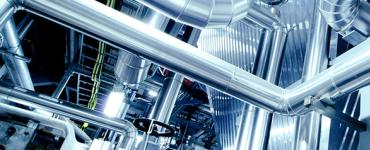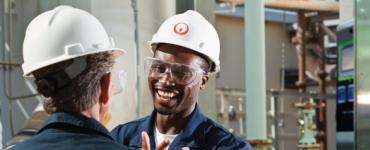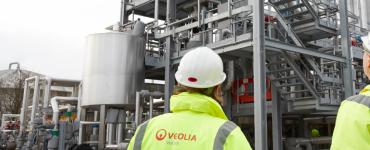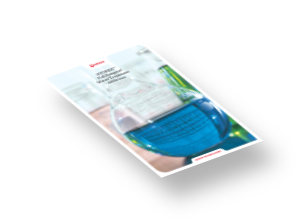Cooling Water Treatment Chemicals
What is it?
The establishment of an effective chemical and service program to maintain a safe, efficient, functioning cooling water system by treating both feed and circulation water. Click here to use the interactive tool.
What is the Problem?
Scaling of cooling water systems results in loss of efficiency through the insulation of the heat transfer surface and a reduction of process cooling. Scaling is prevented through control of system blowdown to manage the cycling of the water in the system to an acceptable level. In addition to this chemicals can be added to condition the water to be in a state that reduces its tendency to scale.
Corrosion causes metal loss from the system which can lead to plant and equipment failure that results in costly repairs and replacement. Corrosion is prevented through the addition of chemicals that inhibit the formation of a "corrosion cell" they "passivate" or coat the surface of the metal creating conditions preventing corrosion.
Fouling causes blockages, reduction of flows and reduction of surface areas for heat transfer in equipment. Fouling is prevented through the removal of potential water contamination prior to it getting in the tower. The effect of airborne contamination is minimised through the use of air inlet filters and online filtration. Ongoing inspection and tower cleaning are also important to prevent Fouling from becoming an issue. Chemicals are also added to keep fouling in the water flow and allow it to settle safely in the sump of the cooling tower.
Microbiological growth leads to problems with heat transfer, biofilm is many times more insulating than scale. Critically though, uncontrolled microbiological activity adds a potential risk of human infection through inhalation of Legionella bacteria from contaminated water droplets which can result in individuals contracting Legionnaires disease. Microbiological growth is controlled through the use of biocides to maintain water conditions that are unfavourable to bacterial growth.
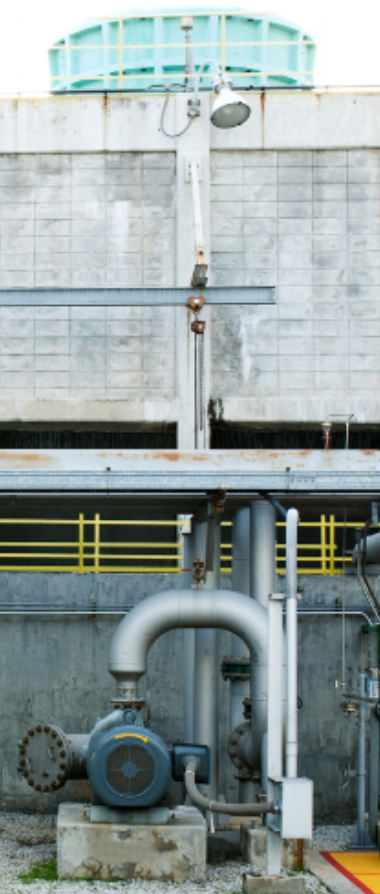
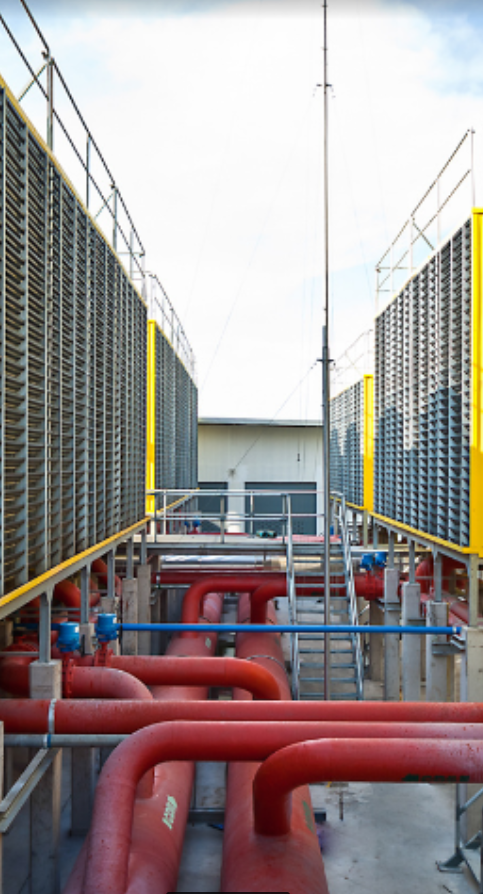
What is the Solution?
We have particular expertise in the design and management of industrial cooling water treatment, with an emphasis on understanding how cooling water impacts on your production, operational costs and importance on achieving compliance.
Our range of proven technologies, coupled with our water hygiene capabilities will bring you the results you need by helping you achieve full compliance to all legislation - our services are accredited by the Legionella Control Association.
Our products include a range of corrosion inhibitors, organic inhibitors, and solid water chemical treatment products that can improve the environmental footprint of your water treatment needs. We will look holistically at your water treatment challenges and design a program aligned with the outcome of a detailed survey addressing the mechanical, operational and chemical considerations of your cooling water system.
Our programs can impact your operation by:
- Ensuring compliance to the HSG274 Part 1 ‘ The control of legionella bacteria in evaporative cooling systems’
- Protection of your assets through utilising a range of corrosion inhibitors specific to your Mechanical, Operational and Chemical needs
- Implementing strategies to reduce the water footprint of your cooling water system by reviewing the cycles of concentration in which they operate and utilising chemistries that can deliver optimisation
- Delivering programs that improve the cleanliness of heat transfer surfaces. Increases in the heat transfer efficiencies translate to reductions in energy expenditure and an additional benefit of a decrease in a facility's carbon footprint.



